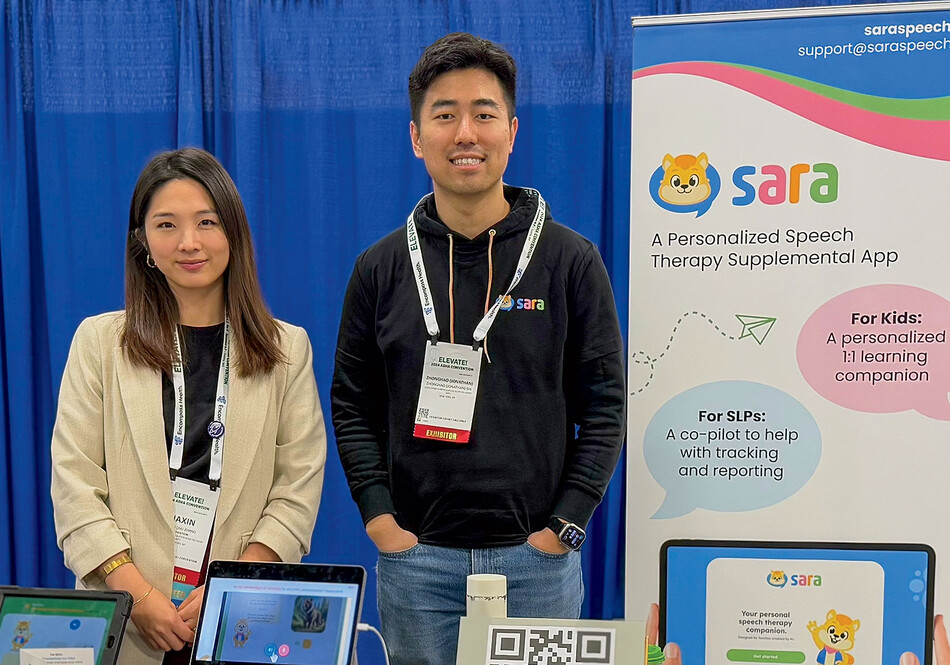For Jiaxin Zhang ’25BUS, who emigrated from China to Florida at age nine, mastering English pronunciation didn’t come easily. “I was made fun of because of my accent,” she says. Years later, while working in consulting, Zhang met Jonathan Shi, a computer scientist and fellow Chinese immigrant who had once struggled with a childhood speech disorder. Shi was studying how AI can support kids’ health and wellness for his PhD at the University of Southern California. Bonding over similar experiences, Zhang and Shi joined forces to design an innovative product: an AI-driven app that helps kids ages four through twelve overcome problems with speech articulation.
Sara Technology (an acronym of “Speech Articulation Reinforcement App,” as well as a reference to Saraswati, the Hindu goddess of speech) officially launched this past summer after winning first place at the 2025 Startup Columbia entrepreneurship challenge — an honor that came with a $25,000 prize. The app, which guides kids through audio-based activities designed with input from speech pathologists, is meant to be as fun as it is helpful. “The technology detects children’s speech errors, such as issues with the r sound, and provides personalized feedback to help them pronounce words and sounds correctly,” explains Zhang, who recently finished her MBA at Columbia Business School.
Like other AI systems, Sara improves as it accumulates large quantities of data over time. “Most speech-recognition technology works on a word level, but our AI model needs to have advanced sound and phoneme-level recognition,” says Shi. “As more children use the app, and with permission from parents to collect data, the model will become more and more accurate and continuously adapted to the child’s speech pattern.”
For many families, working with a speech therapist can be prohibitively expensive or difficult to schedule, especially if the problem isn’t severe. Zhang and Shi hope that Sara will help bridge that gap, making articulation therapy more accessible to the masses.
This article appears in the Fall 2025 print edition of Columbia Magazine with the title "Voice Assistant."



